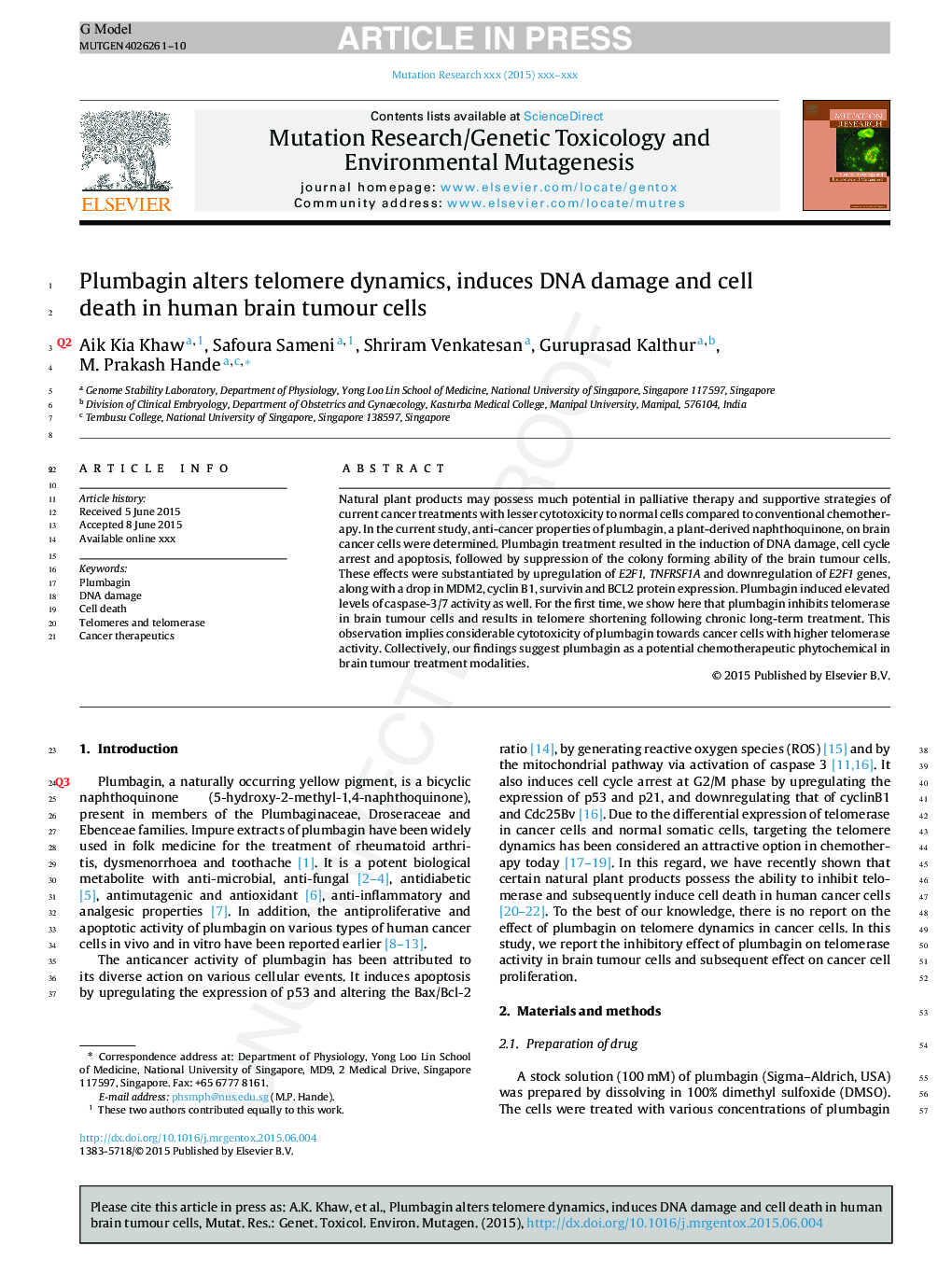| Article ID | Journal | Published Year | Pages | File Type |
|---|---|---|---|---|
| 8456323 | Mutation Research/Genetic Toxicology and Environmental Mutagenesis | 2015 | 10 Pages |
Abstract
Natural plant products may possess much potential in palliative therapy and supportive strategies of current cancer treatments with lesser cytotoxicity to normal cells compared to conventional chemotherapy. In the current study, anti-cancer properties of plumbagin, a plant-derived naphthoquinone, on brain cancer cells were determined. Plumbagin treatment resulted in the induction of DNA damage, cell cycle arrest and apoptosis, followed by suppression of the colony forming ability of the brain tumour cells. These effects were substantiated by upregulation of PTEN, TNFRSF1A and downregulation of E2F1 genes, along with a drop in MDM2, cyclin B1, survivin and BCL2 protein expression. Plumbagin induced elevated levels of caspase-3/7 activity as well. For the first time, we show here that plumbagin inhibits telomerase in brain tumour cells and results in telomere shortening following chronic long-term treatment. This observation implies considerable cytotoxicity of plumbagin towards cancer cells with higher telomerase activity. Collectively, our findings suggest plumbagin as a potential chemotherapeutic phytochemical in brain tumour treatment modalities.
Related Topics
Life Sciences
Biochemistry, Genetics and Molecular Biology
Cancer Research
Authors
Aik Kia Khaw, Safoura Sameni, Shriram Venkatesan, Guruprasad Kalthur, M. Prakash Hande,
